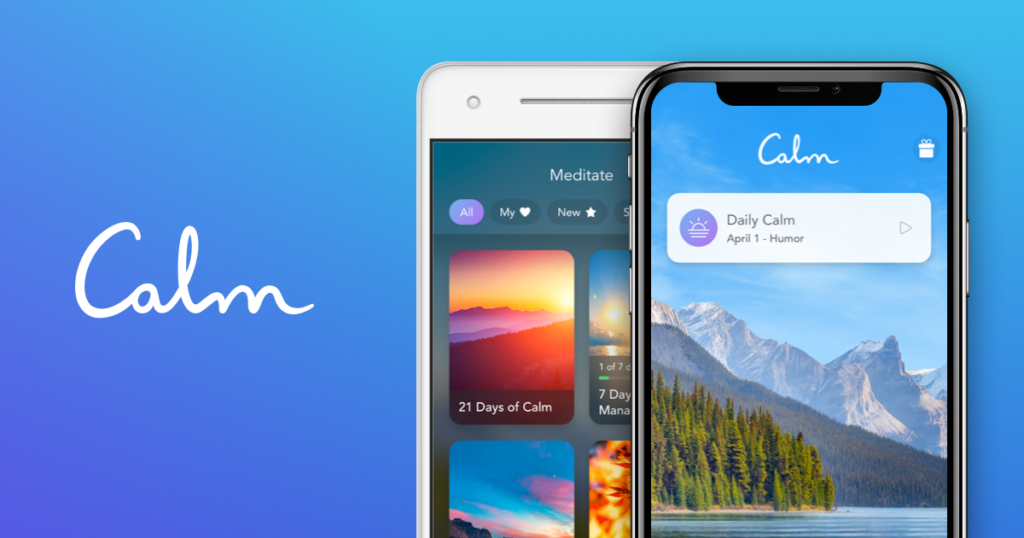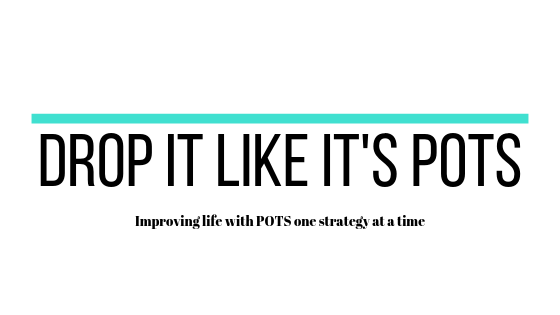I have changed my tune on meditation in the last year. I used to think it was a nutty new-age practice. Since taking up meditation with the Calm app, I have learned it is completely different than what I thought it was. And it is awesome.
What is meditation? What is it like?

Meditation is a relaxation-based practice. I used to think that you were supposed to “empty your mind”, but it turns out that the opposite is true. Meditation is a way to stay focused on the present. This is called mindfulness.
Here is how I would define mindfulness: I am present rather than being carried away by inner dialogue/daydreams. You know what I’m talking about. How often have you been driving and all of a sudden realize, “Oh crap! How did I get here?” That is perfect example of not being mindful. Being mindful is taking in the experience and awareness of every part of that drive in a calm and joyful way.
Over time, mindfulness meditation trains your brain to recognize when it’s getting carried away by inner dialogue and snap back to reality. Meditation also helps you to be less reactive. It teaches you how to not “strain” as much in life trying to change things that you have no control over.
Meditation sessions can be any length you choose, but I usually aim for 10-20 minutes each day. You may meditate with eyes open or close, sit or lay down, whatever floats your boat. I like to lay down with my eyes closed. Sometimes, I lay on a bolster to release my psoas muscles while I meditate.
The Calm app has Day 1 of it’s series “7 days of Calm” for free on YouTube. It’s a good one to check out to get an idea of what meditation is like.
What are the benefits of meditation? How does this relate to POTS/ME?
POTS and ME may have an autoimmune or inflammatory cause. Meditation has been shown to be more effective at modulating inflammation than other forms of relaxation. One possibility of how meditation reduces inflammation is by reducing reactivity to stress. Meditation teaches “non-reactivity” which basically means not freaking out and ruminating over things. Non-reactivity has a positive effect on the nervous system which translates to a positive effect on the immune system.

POTS and ME patients often have an overactive sympathetic (fight or flight) response in the brain. This response exacerbates symptoms and is part of the etiology of these diseases. Meditation improves parasympathetic (rest and digest) nervous system activity, which combats the overactive sympathetic response. Heart rate variability is an indicator of parasympathetic activity and has been shown to improve with meditation.
Meditation has been shown to create functional neuroplastic changes in the amygdala. This means that meditation can change the pathways in your brain to be less “stuck” in sympathetic functioning. Some people have had great success in using the principles of neuroplasticity to treat certain chronic illnesses. I have not tried the Dynamic Neural Retraining System (DNRS) that I linked there, so I cannot speak to its effectiveness. I am using it as an example to demonstrate the potential benefit of neuroplasticity to chronic illnesses such as POTS and ME.
Is my POTS or ME better because of meditation?
It is tough to answer that. I have changed so many things since I began meditating that it is difficult to scientifically pin down what has been impactful. Also, meditation is definitely a “long-game” strategy. Building new neural pathways can take months or even years. So, I have no clue how meditation has impacted me physically, but I feel that meditation is useful to me in having the healthiest life I can with chronic illness. Here are the things I notice meditation helping me with:
- “Snapping” out of things faster. I will catch myself holding tension in my abdomen almost immediately nowadays. I will also “snap” out of ruminations quicker.
- Calming myself down quicker.
- Conserving energy better. Because I can identify tension and calm myself down easier, I don’t waste as much precious energy on stress, nervousness, random adrenaline surges, etc.
And no, this doesn’t mean I am some zen-master that never gets worked up. It just means I am better than I used to be.
Is it religious or spiritual?
No, meditation is a non-dogmatic mental exercise. It’s possible that some meditation teachers go that route, but I have not found that to be my experience with the Calm app.
Calm app

I cannot recommend the Calm app highly enough. It is awesome. I have been using it since the beginning of 2019. It taught me to meditate and how to apply this brain training to my everyday life.
I have used several of the series within the app and they are all excellent. My favorite so far is the 30 day Learn to Meditate with Jeff Warren. Jeff is hilarious and down to earth. His realness resonates with me. If you are new to meditation, definitely start with that series because he teaches how to do it in an easy to understand way.
The Calm app also has sleep stories. Generally, I sleep great, but every once in a while I will lay in bed imagine all the embarrassing things I’ve ever done in my life. And if you know me at all, there’s a lot of memories to work with here. All I have to do is turn one of the sleep stories on, and bam, I am asleep in less than ten minutes. They are crazy effective.
There are several other features within the app that are useful: masterclasses, deep breathing timer, kids meditations, music, stretches, etc. The options are endless as they continue to add new meditation series regularly. I have been using the app daily for almost a year and feel like I haven’t even scratched the surface.
Other Apps
Here are some other meditation or meditation-ish apps that the Mayo Clinic recommends:
Podcasts
These are nice because they are free. My favorite is the Meditation Minis Podcast. It is hypnotherapy-based, which is super calming to me.
Have you tried meditation? What benefits have you noticed?
I also love deep breathing for relaxation and parasympathetic nervous system activity boosting. I will sometimes incorporate it will meditation and do it randomly throughout the day. To read about that visit my post on deep breathing.
Disclaimer: I am not a medical professional. Statements on this site are not meant to be taken as medical advice. These statements reflect my personal experiences having mild-ish post-viral POTS and ME. Due to the wide spectrum of these diseases, comorbidities, and everyone being different, your experiences may be very different than mine.
Note: If you post a comment, this site does NOT have a feature to notify you of responses to your comment. I have not found a good solution for that yet. However, I usually respond to every comment in a timely manner, so be sure to check back.

4 Comments